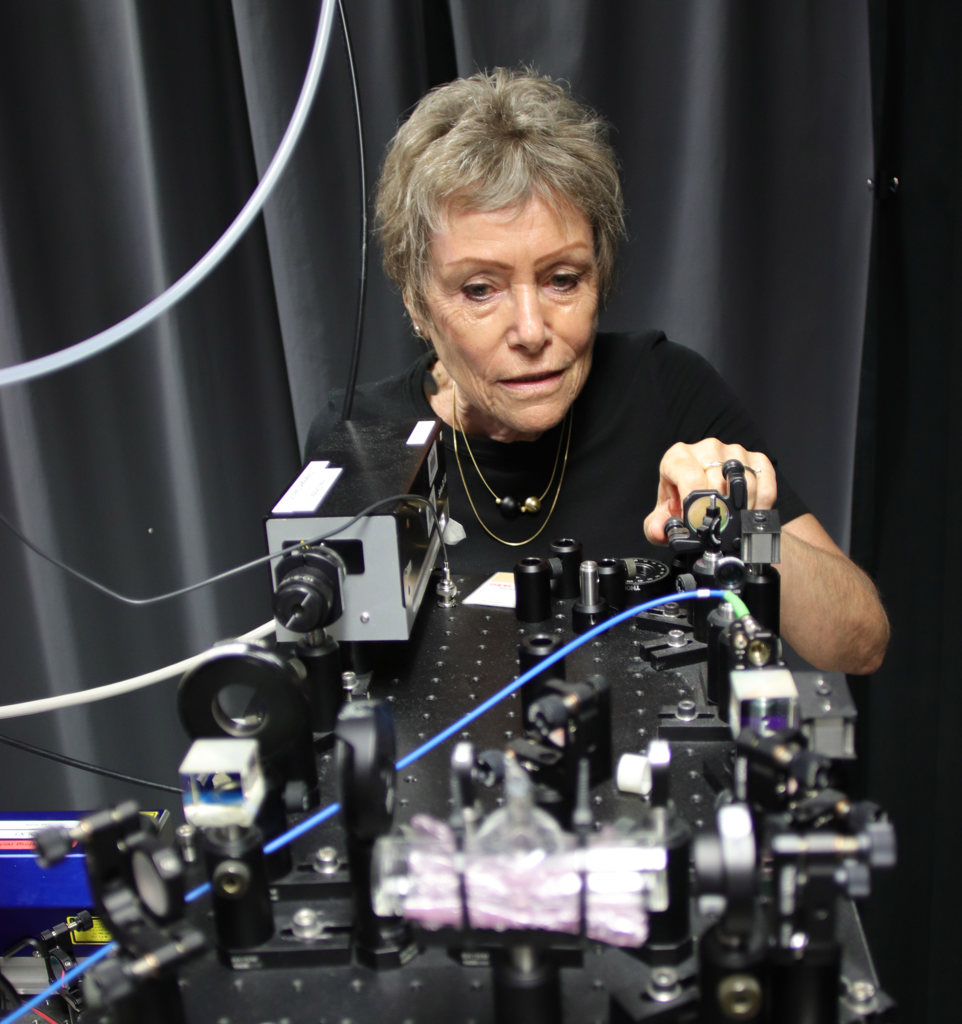2021 C.E.K. Mees Medal Winner
Get Involved
- Optica on Ukraine
- Awards & Honors
- Diversity, Equity & Inclu...
- Early Career Professional...
- Education Outreach
- Global Policy & Affairs
- Local Section
- Virtual Engagement
- Students
-
Technical Groups
- Bio-Medical Optics
- Fabrication, Design and Instrumentation
- Information Acquisition, Processing, Display and Perception
- Optical Interaction Science
- Photonics and Opto-Electronics
- Quantum
- Sensing
- Technical Group Leadership Volunteers
- Technical Group Webinars
- Technical Group Search
- Technical Group Prizes
- Simulight Optics Challenge
- Volunteer
- Optica on Ukraine
- Awards & Honors
- Diversity, Equity & Inclusion
- Early Career Professionals
- Education Outreach
- Global Policy & Affairs
- Local Section
- Virtual Engagement
- Students
-
Technical Groups
- Bio-Medical Optics
- Fabrication, Design and Instrumentation
- Information Acquisition, Processing, Display and Perception
- Optical Interaction Science
- Photonics and Opto-Electronics
- Quantum
- Sensing
- Technical Group Leadership Volunteers
- Technical Group Webinars
- Technical Group Search
- Technical Group Prizes
- Simulight Optics Challenge
- Volunteer
The Optical Society Names Halina Rubinsztein-Dunlop the 2021 C.E.K. Mees Medal Recipient
The Optical Society is pleased to announce that Halina Rubinsztein-Dunlop, University of Queensland, Australia, has been selected as the 2021 recipient of the C.E.K. Mees Medal. Runinsztein-Dunlop, the first woman to receive the medal since it was established in 1961, is honored for pioneering innovations in the transfer of optical angular momentum to particles, using sculpted light for laser manipulation on atomic, nano- and microscales to generate fundamental insight and provide powerful probes to biomedicine.
 Halina Rubinsztein-Dunlop received her M.Sc. and Ph.D. from the University of Gothenburg, Sweden. After serving at the Chalmers University of Technology, Sweden, Rubinsztein-Dunlop moved to Australia and joined the University of Queensland. Today, she is Head of the School of Physical Sciences and Head of the School of Mathematics and Physics.
Halina Rubinsztein-Dunlop received her M.Sc. and Ph.D. from the University of Gothenburg, Sweden. After serving at the Chalmers University of Technology, Sweden, Rubinsztein-Dunlop moved to Australia and joined the University of Queensland. Today, she is Head of the School of Physical Sciences and Head of the School of Mathematics and Physics.
Rubinsztein-Dunlop is a pioneer in her field. She was the first female Professor of Physics in Australia. Her work on the mechanical action of light, subsequently applied to biological and micron-scale systems, produced seminal results during the field’s birth in the 1990’s. Her group in laser micromanipulation/ optical tweezers was the first to demonstrate the transfer of angular momentum of light to microscopic particles. In addition, she was the first to demonstrate an optical system that can apply and accurately measure the torque exerted by a trapping beam on a rotating birefringent probe particle. Rubinsztein-Dunlop also has a distinguished record of achievement in the atomic domain of laser cooling and trapping of atoms.
She is the recipient of multiple awards, including the Australian and New Zealand Optical Society’s W.H. (Beattie) Steel Medal, and the Eureka Prize for Excellence in Interdisciplinary Scientific Research. She is a Fellow of OSA, SPIE, and the Australian Academy of Science.
This year marks the 60th anniversary of the Mees Medal, which recognizes an original use of optics across multiple fields. It honors the memory of C.E.K Mees who contributed preeminently to the development of scientific photography, and was a charter member of OSA. The medal was endowed by the Mees family.
